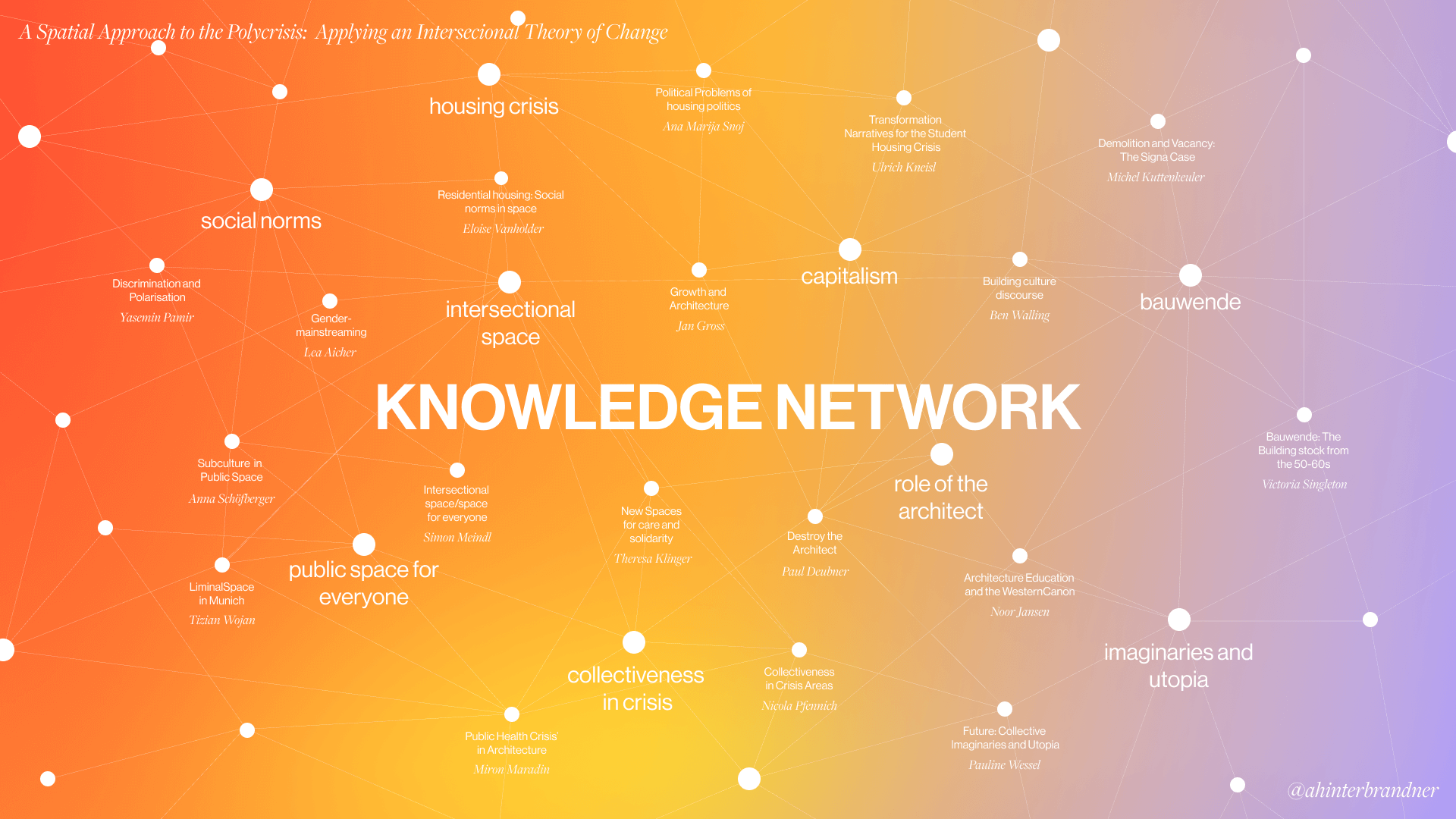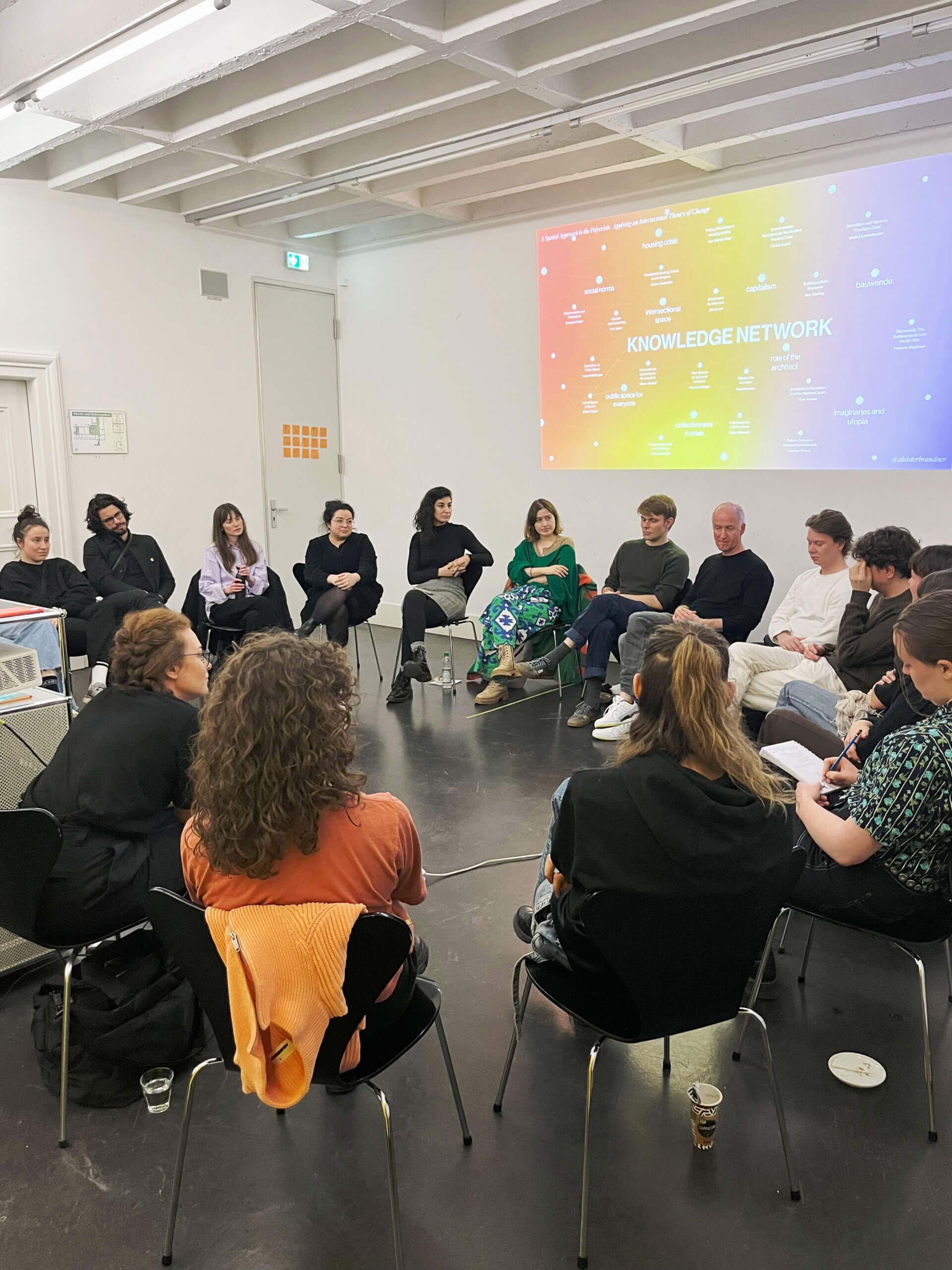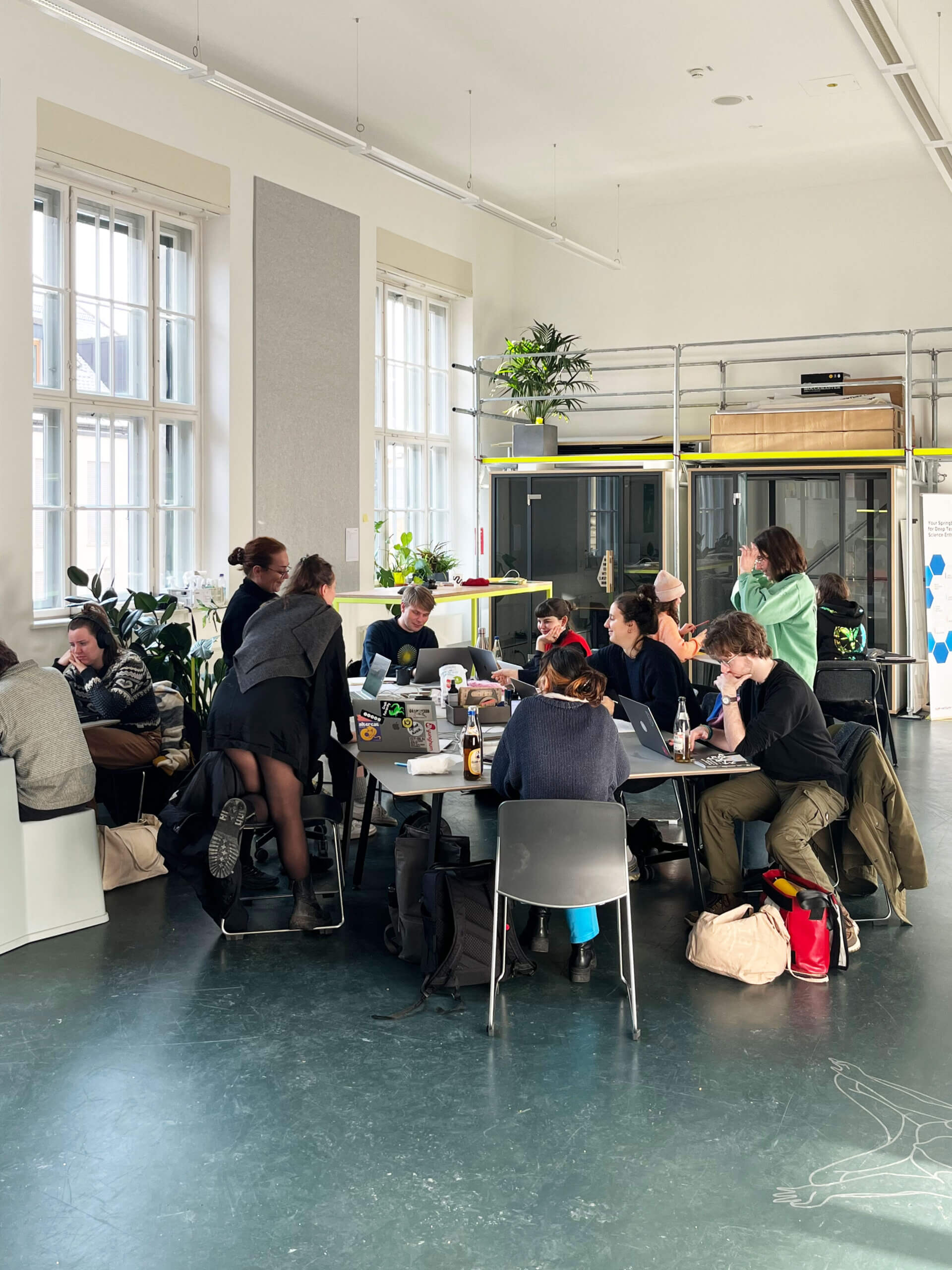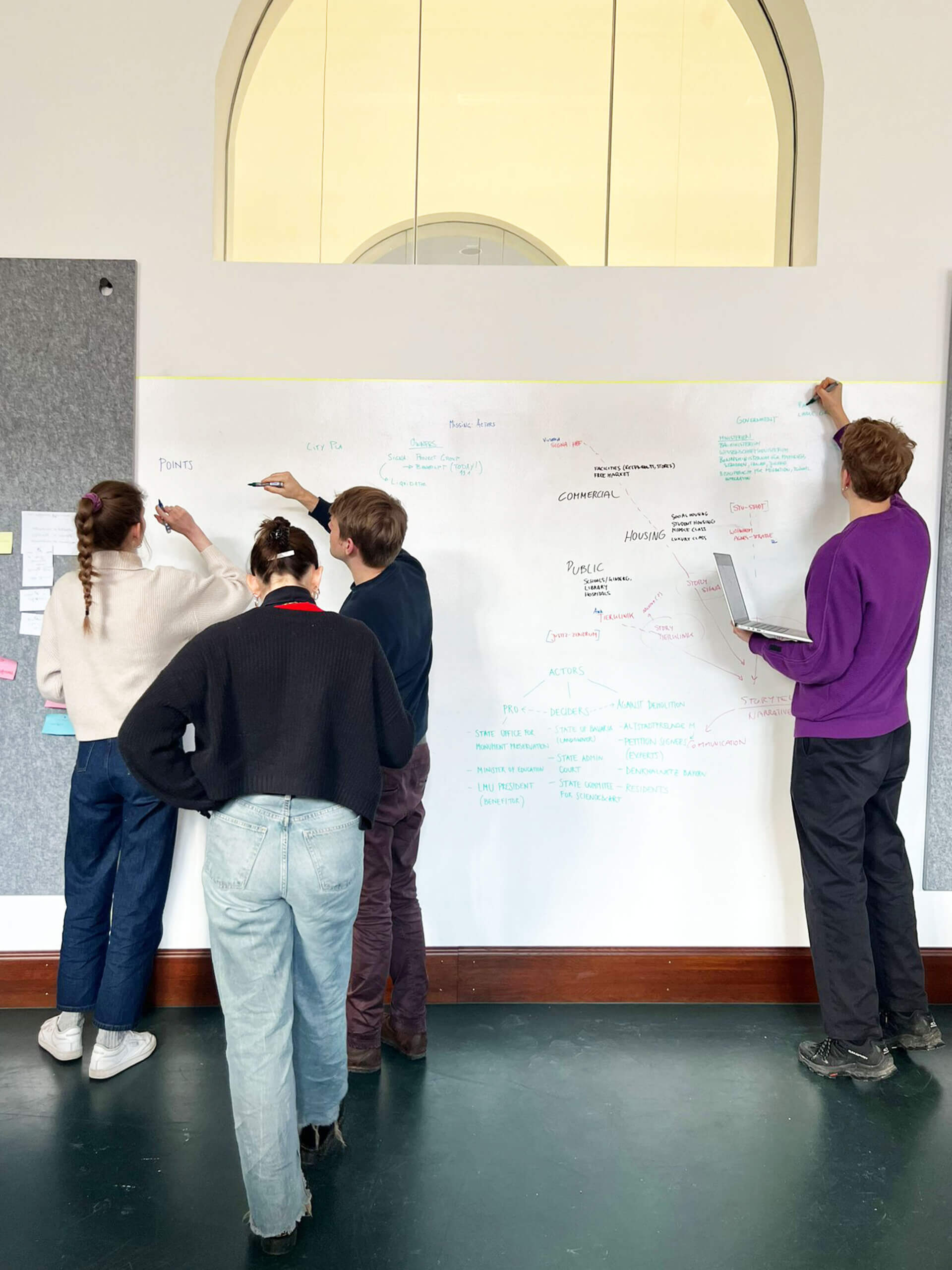Lehrveranstaltung TU München
A Spatial Approach to the Polycrisis
Applying an Intersectional Theory of Change
Wie können wir die Polykrise räumlich verstehen – und politisch adressieren? Das Seminar an der TUM untersuchte Klimawandel, Faschismus und Verteilungskonflikte aus intersektional-feministischer Perspektive. Die Teilnehmer*innen analysierten gesellschaftliche Machtverhältnisse und entwickelten eigene räumliche Strategien. Im Zentrum: räumliche Interventionen als Teil einer Theory of Change.
Das Format verband Lehre mit gesellschaftspolitischer Praxis und öffnete Räume für strategisches Denken, kollektives Lernen und gestalterische Positionierung.
Auftraggeber
TU München/School of Architecture and Engineering
Lehrformat (6 ECTS/4 SWS), bilingual (Deutsch/Englisch)
Jahr
Wintersemester 2023/2024
Rolle
Konzeption, Durchführung, Kuratierung, Betreuung, Didaktikentwicklung
Beteiligte Akteur*innen
Studierende aus verschiedenen Masterprogrammen der TUM
#Polykrise #Feminismus #Theory of Change
Studierende
Lea Andrea Aicher, Mine Büyükışcan, Paul Deubner, Jan Fries, Jan Gross, Noor Anne-Wil Jansen, Theresa Klingler, Ulrich Kneisl, Michel Kuttenkeulner, Miron Maradin, Simon Meindl, Yasemin Pamir, Nicola Pfennich, Anna Schöfberger, Victoria Singleton, Ana Marija Snoj, Eloise Vanholder, Ben Walling, Pauline Wessel, Tizian Wojan
Im Rahmen der Lehrveranstaltung ist die Grundlage für das Knowledge Network als auch ein Buch mit Texten der Studierenden entstanden.
Fertigstellung des Buchprojekts im Herbst 2025



